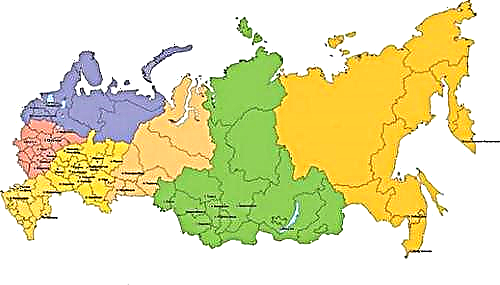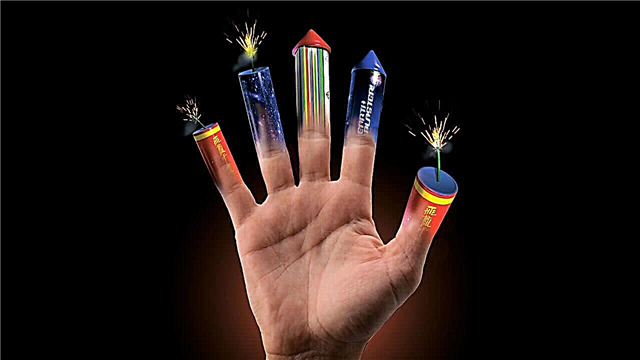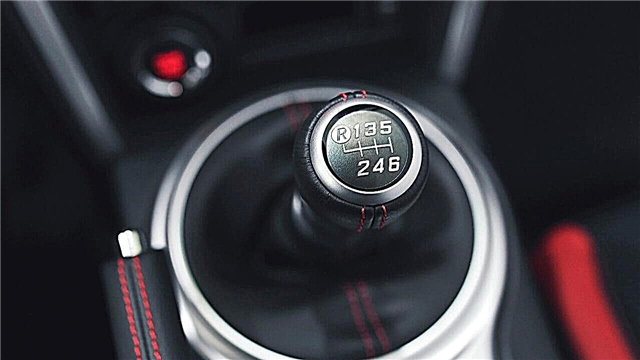German annually Technical Supervision Union (TÜV) creates reports on defectiveness of various brands of cars. Every vehicle brand that gets inspected must be checked at least 500 times in order to be included in the TÜV reliability rating, so the statistics are accurate enough. And the Russian automotive Internet portal AvtoVzglyad analyzed a recent TÜV study and found out which car brands are better not to buy for use on Russian roads. AutoVzglyad experts were interested in relatively “fresh” 2-3-year-old cars. Well, if they already had technical defects, then with "age" their condition will only worsen.
Here's what it looks like top 10 most unreliable foreign cars in Russia 2017 year.
10. Volvo V70
The percentage of machines with technical defects is 10%.
 This is not to say that the V70 breaks down a lot and often, but 10% of “defective” cars turned out to be enough to get on the list of the most unreliable used foreign cars.
This is not to say that the V70 breaks down a lot and often, but 10% of “defective” cars turned out to be enough to get on the list of the most unreliable used foreign cars.
The problems characteristic of this model usually occur in an automatic transmission after 100,000 mileage. Slowly, the valve body begins to die, the replacement of which is expensive.
9. Peugeot 5008
The percentage of cars with technical defects is 10%.
 The new player on the Russian crossover field has a luxuriously designed interior, one of the best in the Peugeot family. With a European suspension setting, the car is well controlled, but experts note its weak geometric cross-country ability. Peugeot 5008 behaves confidently only on a hard, not embossed surface.
The new player on the Russian crossover field has a luxuriously designed interior, one of the best in the Peugeot family. With a European suspension setting, the car is well controlled, but experts note its weak geometric cross-country ability. Peugeot 5008 behaves confidently only on a hard, not embossed surface.
Car owners note poor-quality assembly of doors and frequent jamming of locks and windows, especially in wet weather. In winter, the doors are constantly freezing and it is better to lubricate them in advance with silicone grease. And almost all open mounting contacts are quickly oxidized.
8. Hyundai i30
The percentage of cars with technical defects is 10.1%.
 The weaknesses of the Korean hatchback are noise isolation and low ground clearance. But he holds the road well, is unpretentious in maintenance and starts well in winter. Used cars often have to change the brake hoses, struts and stabilizer bushings and repair the electric power steering.
The weaknesses of the Korean hatchback are noise isolation and low ground clearance. But he holds the road well, is unpretentious in maintenance and starts well in winter. Used cars often have to change the brake hoses, struts and stabilizer bushings and repair the electric power steering.
7. Skoda Oktavia
Revealed 10.2% of problematic machines.
 Unpretentious car with a huge trunk, low fuel consumption and high ground clearance is a well-deserved love among Russian motorists. However, it happens that Skoda fails its owner, and most often this is due to the need to replace CV joints, wheel bearings, timing belt, rear shock absorbers and the trailer of the fifth door.
Unpretentious car with a huge trunk, low fuel consumption and high ground clearance is a well-deserved love among Russian motorists. However, it happens that Skoda fails its owner, and most often this is due to the need to replace CV joints, wheel bearings, timing belt, rear shock absorbers and the trailer of the fifth door.
6. Renault Kangoo
This brand has 10.3% failures.
 What is the dissatisfaction with the owners of this roomy, maneuverable and comfortable French car? Poor sound insulation, low quality materials for interior trim, and frequent failure of heating the windows, the generator and its pulley (for diesel models). They can not boast of the durability of the front suspension struts and stabilizer bar bushings. Since the roads in Russia are not even and smooth, Renault Kangoo suffers from the geometry of the wheels from driving along them, which entails an expensive repair of the beam.
What is the dissatisfaction with the owners of this roomy, maneuverable and comfortable French car? Poor sound insulation, low quality materials for interior trim, and frequent failure of heating the windows, the generator and its pulley (for diesel models). They can not boast of the durability of the front suspension struts and stabilizer bar bushings. Since the roads in Russia are not even and smooth, Renault Kangoo suffers from the geometry of the wheels from driving along them, which entails an expensive repair of the beam.
5. Peugeot 308
During the TÜV inspection, defects were found in 10.9% of the machines.
 Comfort and beauty - these are two qualities that make the stylish hatchback Peugeot 308 compares favorably with many competitors. But with the reliability of this model, things are not brilliant. According to one of the car owners, it is packed with “useless electronics”, which often fails, which flies the owner “a pretty penny”.
Comfort and beauty - these are two qualities that make the stylish hatchback Peugeot 308 compares favorably with many competitors. But with the reliability of this model, things are not brilliant. According to one of the car owners, it is packed with “useless electronics”, which often fails, which flies the owner “a pretty penny”.
4. Renault Logan
TÜV inspection failed without defects - 12%.
 Logan is a very good car for its price range. She has a suspension that is ideally compatible with Russian roads, which often look more like directions. Consumables are not too expensive, there is a lot of space inside the cabin and the exterior of the car looks solid.
Logan is a very good car for its price range. She has a suspension that is ideally compatible with Russian roads, which often look more like directions. Consumables are not too expensive, there is a lot of space inside the cabin and the exterior of the car looks solid.
However, Renault Logan owners often have to replace the gears of the oil pump drive due to oil leakage through the front oil seal, replace the steering tips, which begin to creak in severe cold, and replace the timing.
3. Renault Duster
Inspection TÜV revealed defects in 12% of cars.
 It’s a pity, but an SUV with an unkillable suspension that is very popular in Russia is among the top 3 most unreliable foreign cars. His most frequent problems are with the engine. Cars of this brand are equipped with either a 1.6 or 2 liter gasoline engine or 1.5 liter diesel engine. Many owners complain about floating speeds, unreliable ignition coils and a crankshaft position sensor.
It’s a pity, but an SUV with an unkillable suspension that is very popular in Russia is among the top 3 most unreliable foreign cars. His most frequent problems are with the engine. Cars of this brand are equipped with either a 1.6 or 2 liter gasoline engine or 1.5 liter diesel engine. Many owners complain about floating speeds, unreliable ignition coils and a crankshaft position sensor.
Renault Duster is also very demanding on the quality of diesel fuel and it quickly clogs the fuel system.
2. Citroen C5
The car is very unreliable - 13% of failures.
 This model is not often found in Russia. Meanwhile, it has many advantages, including: good build, comfortable interior, very smooth ride, excellent directional stability and the ability to change ground clearance over a wide range. More expensive models are equipped with hydropneumatic suspension, low-cost - multi-link suspension, the same as the Peugeot 407.
This model is not often found in Russia. Meanwhile, it has many advantages, including: good build, comfortable interior, very smooth ride, excellent directional stability and the ability to change ground clearance over a wide range. More expensive models are equipped with hydropneumatic suspension, low-cost - multi-link suspension, the same as the Peugeot 407.
Enough for the Citroen C5 and "sore spots." This is the high cost of repairing or replacing vaunted hydropneumatics, frequent malfunctions in the engine control system and problems with electrical parts (power windows, seat drives, etc.) An amazing and unpleasant feature of a car is the ability to break evenly, "slowly", but stably.
His "colleagues" - Citroen C1, C3, C3 Picasso, C4 Picasso and Berlingo - the failure rate is lower, about 10%.
1. Chevrolet Spark
The leader of antidope - 14% of cars needed repairs in the workshop.
 Although this brand has already left Russia, its cars continue to ride on Russian roads and are sold on the secondary market. The strengths of the Chevrolet Spark according to owners' reviews are the exterior and interior, and very good insulation. However, at speeds above 80 km / h, the behavior of the machine becomes unstable, it begins to throw. A large percentage of cars with defects identified by vigilant Germans hinted that you should not buy a used Spark, even if it was "driven by a girl, garage storage."
Although this brand has already left Russia, its cars continue to ride on Russian roads and are sold on the secondary market. The strengths of the Chevrolet Spark according to owners' reviews are the exterior and interior, and very good insulation. However, at speeds above 80 km / h, the behavior of the machine becomes unstable, it begins to throw. A large percentage of cars with defects identified by vigilant Germans hinted that you should not buy a used Spark, even if it was "driven by a girl, garage storage."












